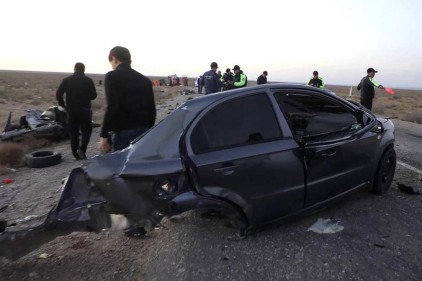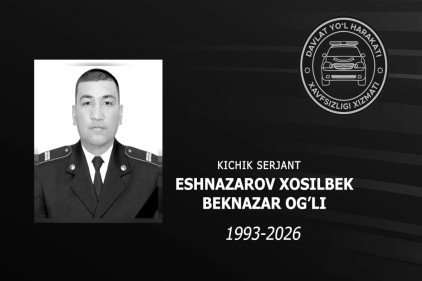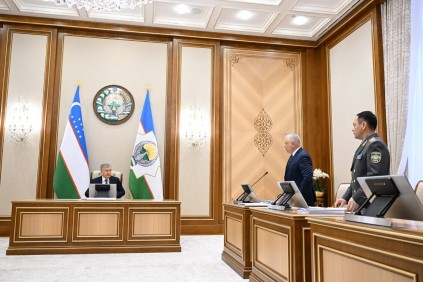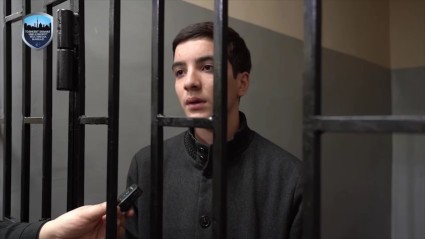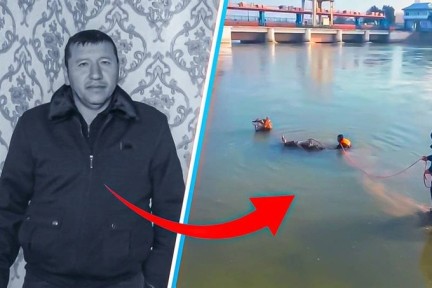President Shavkat Mirziyoyev yesterday signed the Additional Measures to Strengthen Guarantees of Citizens' Rights and Freedoms in Judicial-Investigative Procedures Decree.
The document noted that a number of normative and legal acts were adopted in pursuance of the Uzbekistan’s Five-Area Development Strategy for 2017-2021, which were aimed at ensuring genuine independence of the judiciary, improving the quality and transparency of justice delivering, enlarging the application scope of Habeas Corps and creation of a system for countering corruption.
The abolition of procedure of returning criminal cases by courts for the purpose of additional investigation helped increase the responsibility of judicial and investigative authorities for establishing the truth and other circumstances that are important for the proper resolution of the case, as well as the adoption of a lawful, justified and just decision.
As a result, in just 10 months of 2017, courts issued acquittals to 191 persons, while in the previous five years only 7 persons were acquitted. In addition, in the current year, preliminary investigative bodies through rehabilitating and other reasons stopped 3511 criminal cases.
However, according to the decree, the analysis of law enforcement practices and the results of open dialogue with ordinary people testify of the existence of legal gaps that prevent the rule of law and objectivity in collection, consolidation, verification and evaluation of evidence in the process of investigation and handling of criminal cases.
"These circumstances negatively impact the effectiveness of measures aimed at protecting the rights and freedoms of citizens, as a result, this lead to reasonable discontent of the population, falling of trust in law enforcement bodies and judiciary," the document stresses.
Using the right of legislative initiative, the President instructed to draft a bill aimed at unconditional and strict enforcement of the constitutional principles of the rule of law, equality of citizens before the law, humanism, justice and the presumption of innocence, respect for the rights and freedoms of citizens in forensic investigation, procedural and criminally-executive legislation.
In accordance with article 11 of the Code of Criminal Procedure, any deviation from exact execution and observance of the law, whatever its motivation, is a violation of the law in the criminal process and entails liability. The head of state in his decree drew the attention of law enforcement and judicial bodies to the need for strict compliance with this requirement.
These bodies are warned about the inadmissibility of using the materials obtained with significant violations of procedural law or with illegal methods as evidence in criminal cases. Such violations and unacceptable methods include first and foremost the torture, psychological and physical pressure, and other cruel, inhuman or degrading treatment.
The decree prohibits the introduction of additional requirements restricting the principle of open proceedings in criminal cases in courts, except for cases directly provided for in the Code of Criminal Procedure. It is noted that the evidence of a victim, witness, suspect, accused, defendant, expert's conclusion, material evidence, audio and video recordings and other materials obtained in violation of the procedural law norms shall not be acceptable as evidence.
Due to the legal gap, criminal responsibility for falsifying evidence by making knowingly false information and other misrepresentations in documents and items, compelling to give false evidence, distorting the facts, which resulted in unlawful detention, criminal liability or conviction of a person is being introduced. There is also increased liability for perjury and false denunciation.
A number of extra guarantees are being introduced to ensure the rights and legitimate interests of the parties to criminal proceedings. Thus, a detained person who has been placed in detention in absentia as a preventive measure, will be given the right to appeal in court within 72 hours from the time he was taken to the relevant competent authority.
For prompt and objective investigation of allegations of torture, compulsory examination by prosecutors or courts of complaints about the use of unlawful methods when collecting evidence shall be introduced. The examination includes mandatory medical check.
An important novelty is mandatory video recording of the main procedural actions. Such actions include the investigation of particularly serious crime scene, search, verification of testimony at crime scene and investigative experiment.
In addition, until now, defender had the right to collect not evidence, but information that can be used as evidence, which violated the principle of adversarial proceedings in court. Therefore, defender is entitled to collect and present evidence, which are subject to attachment to the materials of a criminal case.
An important role in ensuring the legality of collection of evidence shall be assigned to prosecutors, who must mandatorily verify compliance with the requirements of the law on immediate registration and resolution of requests, statements and other information about crimes received from persons serving sentences, detainees, or subjected to administrative arrest. Prosecutor shall also be responsible for taking measures to prevent the exertion of psychological or physical influence on these individuals or their close relatives, leading into confusion them regarding release from liability.
In addition, the authorized bodies are given a number of organizational instructions. In particular, it is entrusted to install video surveillance equipment in pre-trial detention centers, temporary detention facilities and special reception centers, places of administrative arrest.
Based on the study of advanced foreign experience, proposals will be developed to improve legislation and methodology for investigating and reviewing criminal cases, expanding the use of innovative forms and methods for conduct of forensic investigations, improving and simplifying criminal proceedings, including through the introduction of the E-Criminal Justice System.


